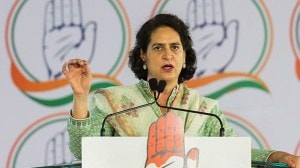- India
- International
To catch a bribe
There are many kinds of corruption,which require pointed solutions.
With the question of corruption dominating the national discourse,we need to realise that the Lokpal is a limited solution,and additional tools are required to battle this pervasive problem.
Recently,the chief economic advisor,Kaushik Basu suggested a way to reduce bribery,by decriminalising bribe-giving. Currently,bribe givers and takers are equally culpable,resulting in their shared incentive to thwart investigations. But what if only bribe-taking is criminalised and bribe-givers are unpunished and their money,in fact,returned to them upon successful prosecution? Perhaps then,he argued,bribe-givers will cooperate with authorities leading to a reduction in bribery.
The argument makes a lot of sense because it emphasises economic incentives for corruption. Indeed,there is a whole literature on economics of crime which argues that if the expected gain from a crime is outweighed by the expected cost,then criminal behaviour will be deterred. With respect to bribery,the expected cost of taking a bribe depends on the likelihood of being caught and the penalty if caught. Because the likelihood of being caught is small,some claim that a very heavy penalty is warranted to deter the behaviour. Prof. Basus argument,however,focuses on the non-penalty factor the likelihood of being caught. To the extent that modifying the law heightens the likelihood of being caught,in actuality or just in the peoples perception,it will reduce bribery.
Note that the likelihood of being caught is a catch-all term that can be decomposed into things such as the likelihood of the bribe-giver making a complaint; the likelihood that the authorities will take action; and the likelihood that the evidence will be conclusive in a court of law. A debatable point is whether bribe-givers could collect enough incriminating evidence to recover the bribe,using numbered currency notes as suggested,or perhaps also tape and video recordings. In the hands of an amateur,this evidence may not be legally convincing. Furthermore,bribe-takers could work through intermediaries,making it difficult to collect evidence. Bribe-givers must also worry that while obtaining a conviction is slow and uncertain,the corrupt official can create mischief in the meanwhile. How much recourse is there for the common man from vindictive officials?
It is possible to address this concern about amateurish collection of evidence. Anyone asked to pay a bribe should contact police or vigilance authorities first. In the ideal situation,professionals then conduct the sting and the collection of evidence. Since the potential bribe-giver receives service,but never pays the bribe,the same incentives are created for reporting bribery as in the original suggestion. Rewards can be added to further encourage complainants to come forward. Another advantage is that the complainant can be kept anonymous; shielded from tortuous legal proceedings and vindictiveness.

Why doesnt this,the current system,work? What can be done to improve it? Here are two possible explanations,and two corresponding solutions.
First,is India really awash in officials demanding bribes? If it is,then the authorities do not need large numbers of complainants they just need to interact with service providers and follow up with investigations. The implication of pervasive corruption going undetected and of corrupt officials being unpunished,is that vigilance authorities are either inefficient or corrupt themselves. If so,anti-corruption measures should focus on this bottleneck. The Lokpal could be efficacious here.
Second,it is possible that officials are not demanding bribes; and that instead of denying service,they are overwhelmed and inefficient. Then bribe-givers give bribes to get faster service rather than waiting in line. Consider a person who needs approval for a building plan. The approval will eventually arrive,but the person bribes the official for faster approval,or alternatively,builds the building without approval and bribes inspectors to look the other way. In this case,bribe-givers are hardly innocent.
For carefully selected cases where the latter category of corruption occurs,other solutions may be tried the service provider should introduce a fast,time-guaranteed queue and charge a higher price for it. This would attract potential bribe-givers and convert the corrupt transaction into an honest transaction. It is done,for example,with sales delivery,passports and express mail,and it could work with services,permits,licences and so on. Extra money from the fast queue can improve the speed of the slow queue. Yield management,used in airlines,hotels,hospitals and other capacity constrained settings,can reduce bribery for limited seats in railways,buses etc.,till more capacity is built. What this means is keeping a few seats available for last-moment,high willingness-to-pay customers. Instead of bribing they will hopefully pay the higher price.
Prasad teaches at the University of Texas,Dallas . His co-author Vijay Mahajan teaches at the University of Texas,Austin
express@expressindia.com
EXPRESS OPINION
More Explained
Apr 27: Latest News
- 01
- 02
- 03
- 04
- 05











































